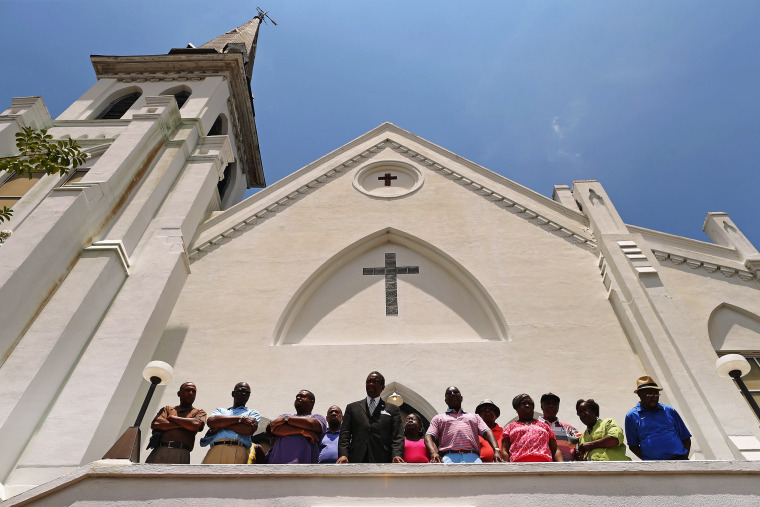The Justice Department on Thursday announced it has reached a settlement agreement with survivors and families of victims of the 2015 mass shooting at Mother Emanuel African Methodist Episcopal church in Charleston, South Carolina.
Lawyers connected to the case told NBC News the agreement provides $63 million for families of those killed in the shooting and $25 million for survivors.
The settlement arose from lawsuits filed by victims and victims’ families who said the FBI ran an insufficient background check on the murderer, a white nationalist named Dylann Roof, which allowed him to purchase a gun he shouldn’t have been able to buy due to a previous drug charge.
Despite all the sorries and settlements paid out, the policy that allowed Roof to purchase his murder weapon is still on the books today.
Roof, intent on starting a race war, entered the historically Black church under the guise of attending Bible study and killed nine people. Five churchgoers survived.
After the FBI learned of its failed background check on Roof, then-FBI Director James Comey said the agency was “sick” over the murder. “We wish we could turn back time,” he stated.
Yet, despite all the sorries and settlements paid out, the policy that allowed Roof to purchase his murder weapon is still on the books today.
The “Charleston loophole,” as it’s been called since the shooting, allows hopeful gun buyers to complete their purchase if an FBI background check isn’t finished within three days. This year, the House passed a bill introduced by Rep. James Clyburn, D-S.C., that would extend that window to 10 days. The House passed a similar bill in 2019, but the Senate — controlled by Republicans at the time — voted it down.
Several Democratic senators introduced a bill this year seeking to close the loophole, but the measure is unable to advance without the support of at least 10 Republicans.
That, of course, brings us to today, where the only form of recompense for the Black people murdered by a white nationalist is money. Black and brown anti-gun violence groups have prioritized closing the Charleston loophole for years, both in response to the church shooting and in response to gun violence in some Black and brown communities. Other national groups opposed to gun violence have pushed for an end to the policy, as well.
The announcement that Charleston shooting survivors and families of victims will receive money for their trauma is a necessary step toward reparative justice. But the money isn’t enough. Congress needs to back it up with substantive policy. Without that, it’s entirely possible the DOJ will find itself doling out millions of dollars on behalf of murderers once again.
Related posts:
Herschel Walker endorsements from high-ranking Republicans underscore sad truth
Rep. Mo Brooks’s latest Jan. 6 remarks are just icing on the disgraceful cake
Trump spewed violent rhetoric after George Floyd murder. Facebook shrugged.
Head over to The ReidOut Blog for more.

